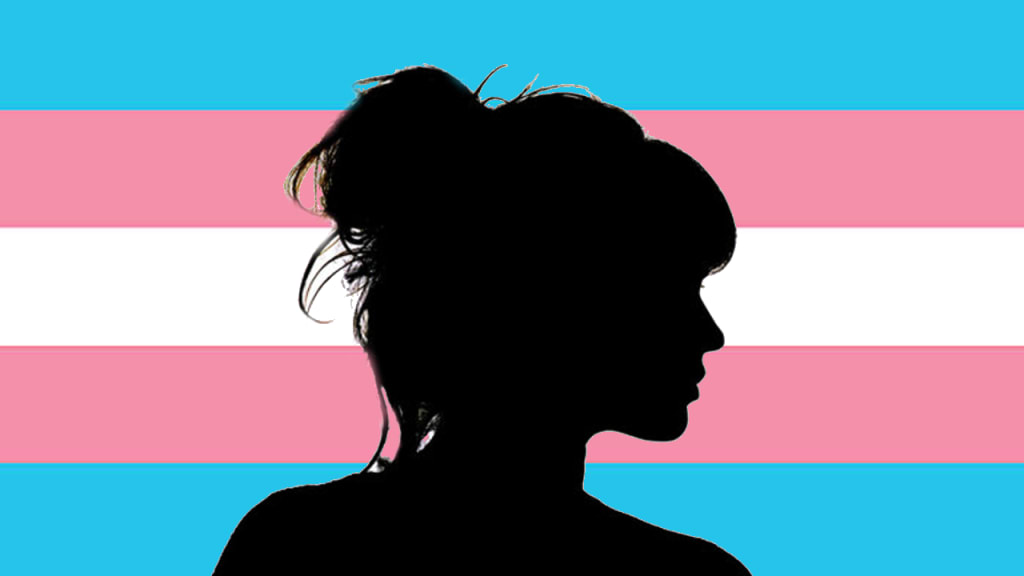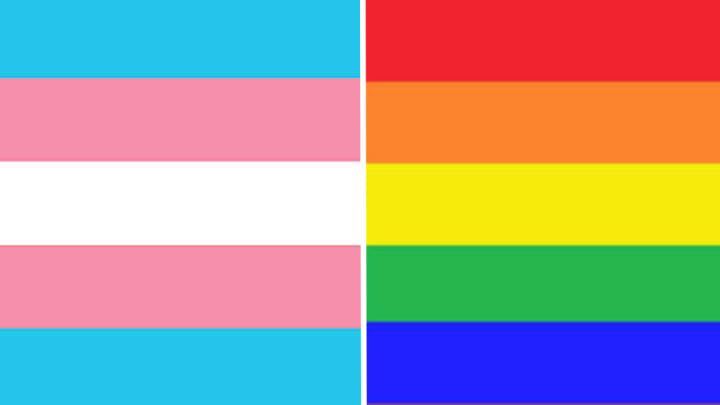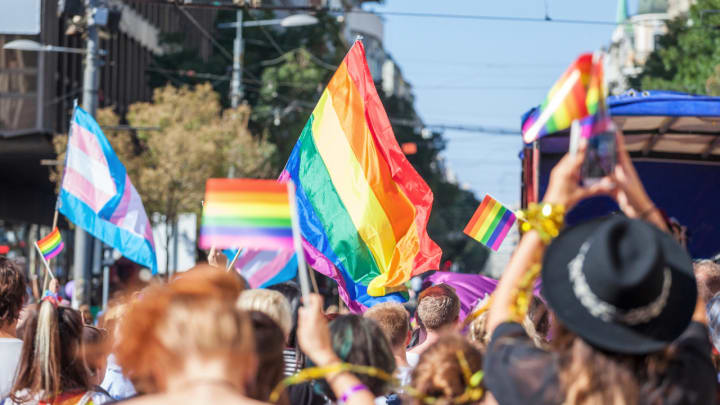
First things first, being trans is not part of a trend. There are misconceptions surrounding the surge of people coming out as transgender as though changing is done to be popular, which is the farthest thing from the truth. Individuals choosing to present their true identities to the world aren't done for a chance to be trendy.
As a trans woman, I feel the most qualified to speak on the experience post-2020. To start, I didn't come out because others were doing so. A recurring assumption is that we mirror everything we see around us. Unfortunately, that notion is a poor understanding of the experience.
I didn’t know anyone in the process of transitioning or recently having transitioned when I took the leap myself. Media didn't influence me either since I stuck primarily to the news feeds and social media I grew accustomed to. Thus, coming out was not motivated by outside variables. The change came from inside of me.
Different metaphors describe the moment a person realizes they are trans, non-binary, or gender non-conforming. Some prefer the egg-cracking or lightbulb-turning-on expressions. I see the realization as waking up to reality. Awakening is too strong of a word, although the sense of becoming aware after decades in a daze is an apt assessment.
(*Timing can also vary from person to person. Individuals exposed to the LGBTQ community early on learn about themselves and know where they stand from a young age. Others like myself who were uneducated can find themselves coming out later in life. Many variables factor into the brain accepting one’s trans identity, too. Sometimes that requires a long period of deep thinking, so there are reasons behind delaying transition until a more comfortable time.*)
Back to my epiphany: At that moment, I gained a level of clarity I never had before, and everything finally made sense. All the signs. All the little details of my life. All the mistakes. They lined up in an order I never would have imagined. Granted, it was a lot of accepting that I was pretending to be someone else the whole time, but the end result was worth the cost because I found the real me. I spent a long time searching for an identity in all the wrong places, filling my life with pointless distractions. I was ultimately just surviving, not living. But once I accepted my trans identity, I pushed aside the regret and began living. Sidenote: I’m still working on it, but I feel my point stands.
So, as you can see, I'm not trans for some trend. I was born a transgender woman. I was assigned a sex at birth that I don’t identify with and had no say in. Then, I was conditioned to live a certain way for the longest time, convinced that I was supposed to be one gender, and told anything else was wrong. Of course, I know how wrong that was, and now I live for myself.
The Work

Daily life as a trans woman is challenging to say the least. I like to amend the previous comment with the note that every journey is different. No one person lives a life identical to any comparable counterpart. We're all too different from each other.
The experience is a trying one. For one, I had to go through it mostly on my own. My family and friends adjusted rather poorly. They turned out to be a lot more close-minded than I expected. Some turned their backs on me, while others showed superficial levels of support, never really putting in the effort. Other trans women can relate to my experience in how families are not all that encouraging. There are valid exceptions, though many of us deal with pushback from relatives. Friends also tend to shy away.
Many cisgender acquaintances stopped communicating with me and outright ignored my messages or phone calls. It is startling when the people you grew close to, individuals you thought could think for themselves, turn out to be as prejudiced as people they scorned in the past. Not only that, a tinge of hurt is there too. When the expectation is friends will be around in the toughest of times, except they disappear, the reality is difficult to accept.
Imagine being in the most vulnerable place in your life, and then you look towards your friends for help and find yourself struggling to simply speak with them. That is the experience of a trans woman. However, not everyone is as ostracized when they come out.
It all comes down to the people you surround yourself with regularly. I was initially around people with close minds, little flexibility, and subtle insecurities projected outwards, which means they responded negatively to me coming out. They probably could have accepted me as gay, but the trans part is what individuals have a hard time getting over. Like, trying to fathom how a person can hide their true identity for decades, only to reveal they feel like a completely different person inside is impossible. Either way, I came out to the wrong people.
The silver lining is I learned to surround myself with those who are accepting of who I am, individuals who look past my physical appearance to the person inside. These things have been the most fulfilling part of my transition. I can best describe it as no longer having to hide behind a disguise.
Being Trans Doesn't Mean You're Gay

Another distinction that needs to be clarified is being trans is one thing and being gay is another. The two are often mistaken for being the same. Sometimes drag is also grouped with trans and gay labels. But what people need to know is each is their own individual identity. Being one doesn’t instantly mean you subscribe to the others, either. The assumption is usually the opposite, especially for trans women.
Still, the misconception that being trans equates to being gay is inaccurate. I identify as bisexual/pansexual, which is probably the most surprising thing people learn when they get to know me. There’s just this assumption that I specifically like men since I’m in the process of transitioning. And yes, I do like men, but I also possess an attraction to women and trans women.
As for living, each day is also a learning experience. The more time passes, the better days become. Of course, some are dysphoric-filled nightmares. No one can adequately prepare a young trans person to combat the negative feelings when the face and body in the mirror don’t reflect who they are inside. So facing that challenge is rough.
For anyone who requires further explanation, gender dysphoria is the feeling or distress brought on by our appearances not matching how we see ourselves inside. The conflict doesn't stem from an expectation that we can flip a switch and look exactly how we want. Becoming the real us on the outside takes a lot of work, time, and effort, and we understand that reality. The challenge lies in coping with gender-specific traits regularly. Facial hair is a perfect place to start.
Facial hair is one of the most irritating things a trans woman has to fight. Shaving can be a daily struggle unless you can afford pricey equipment or laser hair removal. The procedures aren't always a hundred percent effective, either. The rate of growth makes facial hair more bothersome, too. You can shave one day and have stubble the same afternoon or the next day. And some women have it so bad that they see beard growth the following day.
Unsurprisingly, body hair is a different yet equally annoying issue. It can grow back equally fast, and body hair is particularly uncomfortable. Not simply because societal standards set women up to be shaved baby dolls, but body hair is a masculine trait in general. These are personal preferences, though it stands as an ideal example to describe how details of our bodies can strain our minds, resulting in feelings of gender dysphoria.
Trans women also contend with being called sir. Occasionally, the act is unintentional, and other times, the misgendering is by someone trying to project their disapproval.
Regardless of the why, being incorrectly addressed feels very disrespectful and can happen all the time. Even though I regularly dress femininely, have a soft enough voice, and look trans, I still get people calling me sir instead of mam. Over intercoms, on phone calls, in person, everything. One would think in a day and age where preferred pronouns in workplaces are commonplace, people would be more aware of varying gender identities. Again, that emphasizes the challenge of being trans in the post-pandemic era.
The Good

So far, I haven't painted the prettiest picture. I know that. Not everything is terrible, though. While my words probably discouraged quite a few people, coming out is beneficial in many ways. Being open about my gender identity has let me be myself in the most unapologetic way possible. I consider myself a work in progress, but I can happily say I dress the way I want, look the way I want, and talk the way I want to talk. I'm not letting others dictate the parameters of my life either, be it directly or indirectly. I’ve set up boundaries that I never established before. And when people cross them, I let them go. Simple as that.
Letting go of people can be a challenge, though. We all hold the thought in our minds that individuals possess the capacity to change, specifically when it comes to accepting trans identities. Except, sometimes, our worst fears prove true. The people we once trusted turn out to be uncompromising. As a result, we have to let go of them for the sake of our sanity.
Still, there is more to be gained from knowing all these things than being naïve.
Medical Transition

Oddly enough, that entire section was only about socially transitioning in the 2020s. Medically transitioning, another thing, is usually paired with the social process. Since access to gender-affirming care has improved, more trans women are utilizing the services offered by organizations like Planned Parenthood.
One misconception running rampant about Planned Parenthood is all they do are abortions. Locations across the country are bombarded by pro-lifers, parading around with images of dead fetuses. All, of course, done in hopes of dissuading people needing help from going in. The reality, however, is that the organization offers many more services to people of all genders. They provide STI testing, birth control, along with other lifesaving services that would surprise anyone.
For trans women, the organization is a godsend. Planned Parenthood made access to hormone therapy possible for myself included. When I first sought out feminizing hormones from my physician, I got the runaround from the office personnel in charge of referrals. I went back and forth with nurses to get a straight answer regarding an endocrinologist that does trans care. Except, I couldn't get anywhere with them. And just as I was about to call it quits, giving up on medically transitioning, I called Planned Parenthood and had appointments set up for the following month.
To understand how speedy the process was, let me clarify. Some trans women can wait six months or longer to book appointments with endocrinologists, and they still might have another waiting period if the physician requires a letter of recommendation from a licensed psychologist to move forward with treatment. A letter is a requirement in most cases, but the guidelines have changed where an individual can opt not to see a professional. Keep in mind that any person transitioning should take up the offer of mental health services during that time.
Coming out and being trans requires a lot of thinking. Our thoughts can get the better of us when we least expect it, which is when therapists are great to have around. People also need the understanding that going to therapy is acceptable even if you feel fine. Professionals in the field are there to help in either case. We all deal with those times, again hinting at the importance of mental health care.
Getting started with medical transitioning can be insanely confusing. The whole process is, to be honest. My therapists and clinicians helped me tremendously, although going through it was still very new and scary to me.
Nothing is a guarantee, either. Responses vary among recipients. Because while some individuals respond well to the medications, others encounter hindrances. The method of administration also factors into how hormone levels fluctuate. They range from pills, injections, creams, and devices that can administer medication intravenously. The most affordable of those are the pills, although their effectiveness ranks lower than injections. Their objective is to get into the bloodstream, but underlying factors may prevent complete absorption into the body.
There are also risk factors to keep in mind, except the valid ones are less troubling than some doctors would have you believe. Many physicians are encouraging and supportive of transitioning patients. At the same time, individuals are exaggerating the cons regardless of their Hippocratic oaths. They can be misinformed or intend to dissuade patients from seeking gender-affirming care.
Income-Related Roadblocks

Surgery is another popular method of medically transitioning. The benefits of undergoing physical changes are undeniable. Nothing negative can be said. Who wouldn't opt for an immediate confidence boost after an entire life feeling uncomfortable? The thing is, surgical options are unavailable to most trans women.
Unless a transitioning woman is blessed with a job accompanied by medical benefits that cover gender-affirming care or they have a lot of disposable income, getting plastic surgery done will be difficult. Loans, crowdfunding, and government programs work too. Though, surgical options tend to be limited regardless. Costs can range in the thousands of dollars, on the low end. Venturing out to other countries with more affordable healthcare can save an individual a percentage. Trip costs, however, can be expensive.
The risk of getting surgery done in a foreign country also presents the issue of accountability for trans people. Any botched surgeries would be virtually impossible to get restitution for, and depending on the country, it may be the same to have surgeons charged for malpractice. Then recovering from a botched surgery would also require sufficient time to heal said trauma.
You can also guess that a trans woman would need to have a decent size nest egg to rest on while she recuperates from successful surgery. Employers are still getting used to an environment that is more LGBTQ-friendly, so some may not see how important it is to give a woman time off for surgical recovery. Employers tend to lay out the all-around standard, requesting their employee use their PTO for personal leaves like surgery. There are exceptions to that statement, though. Not every boss is unfeeling to their employees during times of need. They may even permit time off for recovery.
Regardless, costs are why surgical options are limited to trans women like myself. A solution would be a reformed healthcare plan. But, as citizens have witnessed in recent years, the United States struggles to get people on the same page with issues like standard healthcare. So, the prospect of a healthcare reform bill that keeps trans people in mind feels unlikely.
Takeaways
What I hope readers take away from this essay is a better understanding of the trans experience. Media and news outlets paint the demographic in unflattering, often stereotypical ways, but I hope everyone sees we are more than soundbites. I also feel optimistic that others already contemplating transition are motivated to take that step. Coming out can be a heart wrenching challenge, especially without the proper encouragement. But maybe this rant will be the kick in the pants — or skirt — that one more person needs.
About the Creator
Allie Z.
I cover most entertainment related topics and am venturing into journalism.






Comments
There are no comments for this story
Be the first to respond and start the conversation.